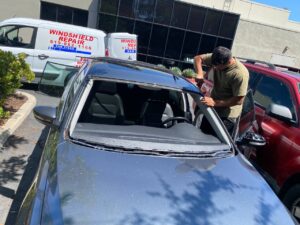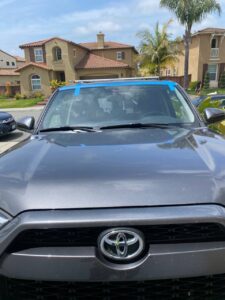Understanding the Perceived Benefits of Covering Vehicle Windows with Plastic
In the pursuit of protecting vehicle interiors from various environmental factors, the practice of covering windows with plastic has gained popularity. However, it is essential to distinguish between the perceived benefits and the potential risks associated with this method. Let us delve into the intricacies of using plastic on vehicle windows and uncover the truth behind this common practice.
The Myth of Enhanced Insulation and Protection
Assessing the Effectiveness of Plastic Coverings
While the application of plastic coverings on vehicle windows might seem like a practical solution for insulation and protection, its actual effectiveness remains debatable. The purported benefits of preventing heat loss and safeguarding against external elements must be critically evaluated to determine the efficacy of this method in real-world scenarios.
Potential Risks of Temperature Fluctuations
Contrary to popular belief, the use of plastic coverings can inadvertently contribute to temperature fluctuations within the vehicle cabin. Improper insulation caused by the accumulation of heat between the plastic and the window surface can result in unpredictable temperature shifts, potentially compromising the comfort and well-being of the occupants.
Unveiling the Hazards Linked to Plastic Coverings on Vehicle Windows
Impaired Visibility and Safety Concerns
One of the primary risks associated with using plastic coverings is the impairment of visibility. The presence of wrinkles, air bubbles, or distortions in the plastic film can obstruct the driver’s line of sight, increasing the likelihood of accidents, especially during adverse weather conditions or nighttime driving.
Structural Risks and Window Damage
Prolonged use of plastic coverings can lead to condensation buildup between the film and the window, creating a conducive environment for mold and mildew growth. Additionally, the constant friction between the plastic and the window surface can potentially cause scratches, chips, or even irreversible damage to the glass, necessitating costly repairs or replacements.
Exploring Alternative Solutions for Vehicle Window Protection
Utilizing Specialized Window Tints
Opting for high-quality and professionally installed window tints can offer a more reliable and long-term solution for enhancing insulation and safeguarding the vehicle interior. Window tints not only mitigate UV rays but also provide enhanced privacy and glare reduction without compromising visibility or structural integrity.
Implementing Custom-Fit Sunshades
Custom-fit sunshades tailored to the dimensions of your vehicle windows can effectively shield the interior from direct sunlight and external elements. These sunshades provide a hassle-free and non-intrusive solution, preserving the clarity of the windows and ensuring optimal visibility for the driver and passengers.
While the practice of using plastic coverings on vehicle windows might seem like a convenient solution, it is imperative to consider the potential risks and hazards associated with this approach. By debunking the myths and exploring safer alternatives such as specialized window tints and custom-fit sunshades, we can ensure the safety, comfort, and longevity of our vehicles without compromising visibility or structural integrity. Make informed choices to protect your vehicle, and prioritize the well-being of all occupants during every journey.





